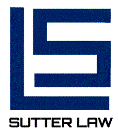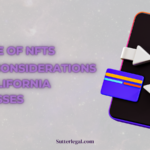Table of Contents
- Understanding the SEC’s Role
- Compliance with Security Laws
- Regular and Transparent Reporting
- Engage Competent Legal Help
- Preparation for Audits
- LARGE TRADER STATUS AND OBLIGATIONS
- WHO IS A LARGE TRADER?
- WHAT ARE THE 13H FILINGS?
The Securities and Exchange Commission (SEC) operates as a crucial component of the financial sector in the United States, overseeing and regulating numerous financial activities to safeguard investors, ensure fair markets, facilitate capital formation, and promote economic stability.
Understanding the SEC’s Role
The first step to staying on the SEC’s good side is understanding its role and mission. As an investor’s advocate, the SEC works to maintain a fair and safe marketplace for trading securities.
They are tasked with the disclosure of essential financial information, enforcing securities laws, and protecting investors from fraudulent activities.
Acknowledging these responsibilities allows companies and individual investors to know what’s expected of them, which is the first step to compliance.
Compliance with Security Laws
The primary way to ensure compliance and foster a good relationship with the SEC is undoubtedly through strict adherence to securities laws.
Ignorance is no defense in the eyes of the law, and this statement holds in the realm of finance.
Painstaking precautions must be taken to ensure that any transactions concerning securities are legal and follow the guidelines set out in relevant regulations such as the Securities Act of 1933 and the Securities Exchange Act of 1934.
Regular and Transparent Reporting
Transparency is central to the SEC’s mission of maintaining fair markets.
It is mandatory for public companies to file periodic financial reports that have been audited by a registered independent accounting firm. Adherence to this requirement not only keeps you on the SEC’s good side but also builds trust with investors. By being diligent and thorough in these reports, you’ll ensure you’re not arousing any suspicion or inviting unnecessary investigation from the SEC.
Engage Competent Legal Help
Owing to the complex nature of securities law, hiring qualified legal counsel is a smart strategic move.
An attorney experienced in securities dealings can guide you through the maze of SEC regulations and offer advice on compliance.
This can ensure you’re never caught off guard by the ever-evolving policies and laws, ultimately protecting you from unnecessary conflicts with the SEC.
Preparation for Audits
Internal and external audits are a constant specter for publicly-traded companies.
Preparation for these eventualities is crucial in staying on the SEC’s good side. By maintaining organized, comprehensive records, companies can ensure they’re always ready for audits when they occur.
Preparation reduces the risk of potential violations being discovered during an audit, which can lead to legal implications.
LARGE TRADER STATUS AND OBLIGATIONS
As a Silicon Valley and San Francisco law firm, we are consistently helping our business clients with their Securities and Exchange Commission (SEC).
The SEC has adopted a new Rule 13h-1 and Form 13H under Section 13(h) of the Securities Exchange Act of 1934 to identify and obtain trading information on market participants that conduct a substantial amount of trading activity, as measured by volume or market value, in the U.S. securities markets.
WHO IS A LARGE TRADER?
The new Rule requires a “large trader” to identify itself and make certain disclosures to the SEC through Form 13H.
A large trader is a person whose transactions in NMS (national market system) securities equal or exceed 2 million shares or $20 million during any calendar day, or 20 million shares or $200 million during any calendar month (also known as the identifying activity level).
You may want to speak with your securities attorney to determine if you meet these standards.
Any broker-dealer, financial institution, or individual who is considered a large trader must have their attorneys file an Initial Filing through Form 13H and then continue to have their lawyers file additional forms as long as they are considered a large trader.
WHAT ARE THE 13H FILINGS?
Some 13H filings need to be done several times a year and may require an Attorney to assist in monitoring when a new filing is required per your trading activities.
After your attorney has completed the Initial Filing, additional filings consist of Annual Filing; Amended Filing; Inactive Status; Termination Filing; and Reactivated Status. Each of these filings is completed through Form 13H.
There are many requirements for large traders, and requirements vary for broker-dealers.
It is essential to contact a business and securities attorney with experience with 13H forms to make sure that each requirement is met in a timely manner.
If you would like a free consultation with an experienced business and securities attorney, please reach out. To set up an appointment call or email.






